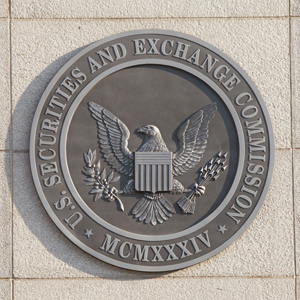SEC defendants are entitled to jury trials, SCOTUS rules in case with 'broad ramifications'

The U.S. Supreme Court ruled Thursday that defendants facing civil penalties for securities fraud before the U.S. Securities and Exchange Commission are entitled to a jury trial under the Seventh Amendment.
The U.S. Supreme Court ruled Thursday that defendants facing civil penalties for securities fraud before the U.S. Securities and Exchange Commission are entitled to a jury trial under the Seventh Amendment.
The high court ruled 6-3 in the case of George Jarkesy Jr., accused of violating securities laws in connection with the launch of two hedge funds. Chief Justice John Roberts wrote the majority opinion.
“A defendant facing a fraud suit has the right to be tried by a jury of his peers before a neutral adjudicator,” Roberts wrote.
The majority affirmed a holding by the 5th U.S. Circuit Court of Appeals at New Orleans that required a jury trial.
“The majority affirms the 5th Circuit’s decision, notwithstanding the mountain of precedent against it,” Justice Sonia Sotomayor wrote in a dissent, joined by Justices Elena Kagan and Ketanji Brown Jackson.
The impact of the decision isn’t limited to the SEC, according to a preview of the case by Erwin Chemerinsky, the dean of the University of California at Berkeley School of Law and an ABA Journal contributor.
A jury trial requirement “would be a major change in the law,” he said. “No administrative agencies would be allowed to impose financial penalties for violations of the law.”
Commenting in an email, former SEC counsel Brad Bondi said the decision “is a big loss for the SEC” because juries may be more skeptical of the SEC’s “more aggressive theories.”
“This is a landmark decision that has broad ramifications across other government agencies that use administrative proceedings,” said Bondi, who co-chairs the investigations and white-collar defense practice at Paul Hastings.
Jarkesy had raised the constitutional issue after the SEC opted to pursue his case in an administrative enforcement action, rather than in a lawsuit in federal court. The agency determined that Jarkesy and his advisory company Patriot28 violated three securities laws. They were ordered to pay a $300,000 civil penalty, and Patriot28 was ordered to disgorge $685,000 in improper gains.
The 5th Circuit had ruled for Jarkesy on three grounds, including the right to a jury trial. The appeals court also said giving the SEC a choice between filing a court case or administrative action was an unconstitutional delegation of powers. And the appeals court ruled that the system that gave administrative law judges protection from removal violated the separation of powers.
The Supreme Court, however, ruled only on the Seventh Amendment issue because it resolved the case.
The civil remedies in the case are designed “to punish and deter,” a type of remedy that could only be determined in courts under the common law, Roberts said. “That conclusion effectively decides that this suit implicates the Seventh Amendment right and that a defendant would be entitled to a jury on these claims.”
The case is Securities and Exchange Commission v. Jarkesy.
Hat tip to SCOTUSblog, which had early coverage of the decision.
See also:
Supreme Court will decide whether SEC enforcement actions violate right to jury trial



